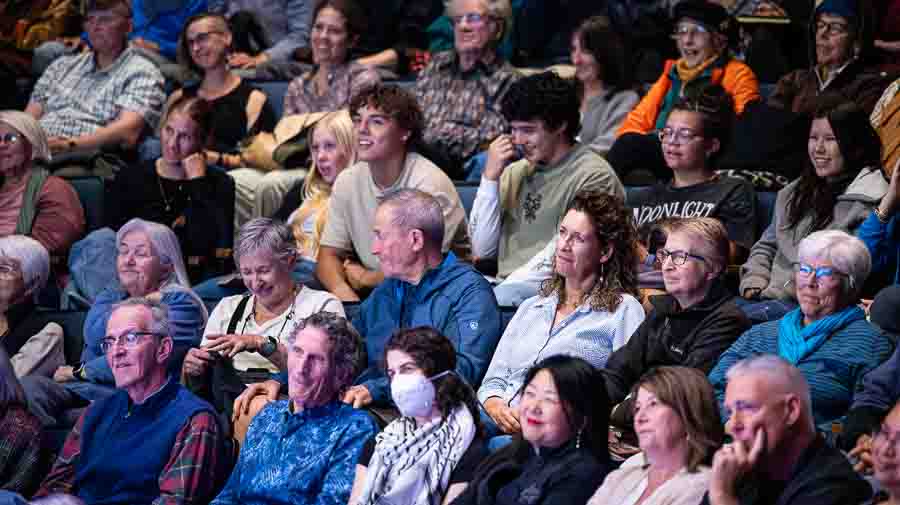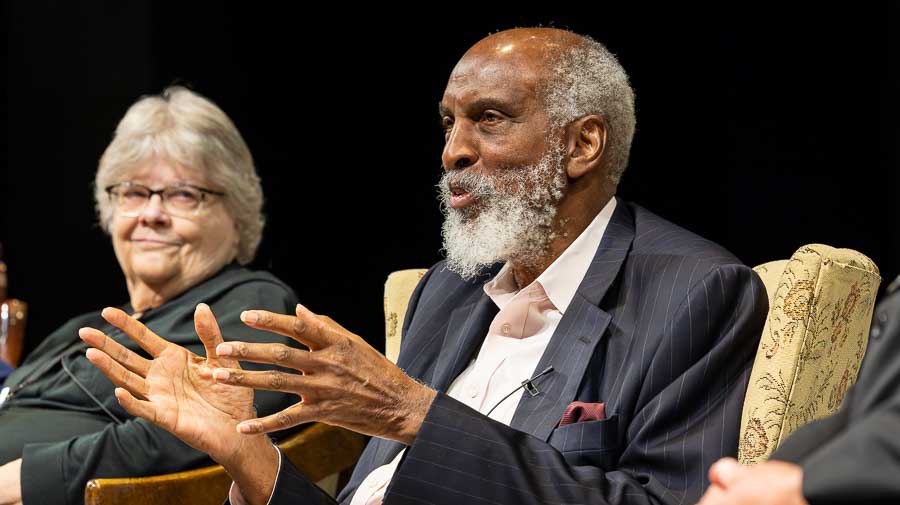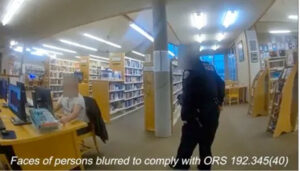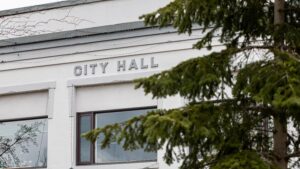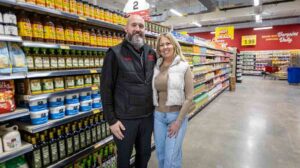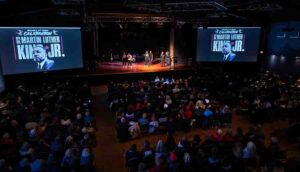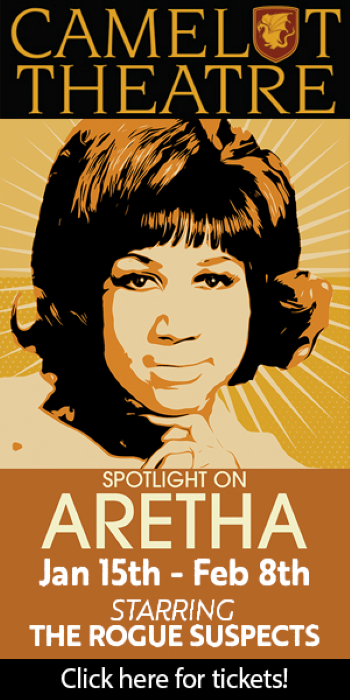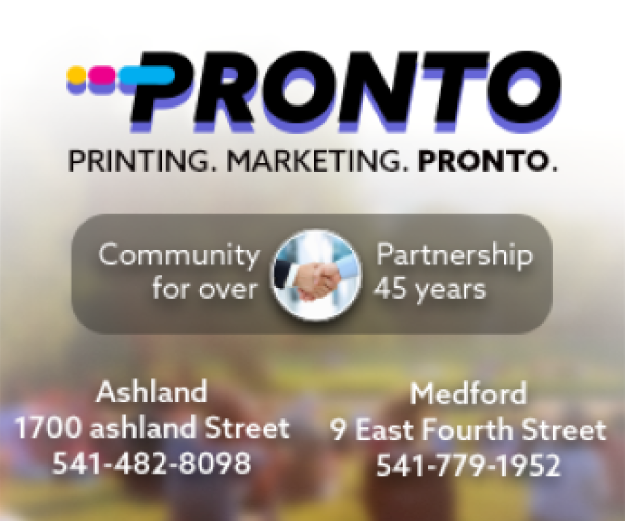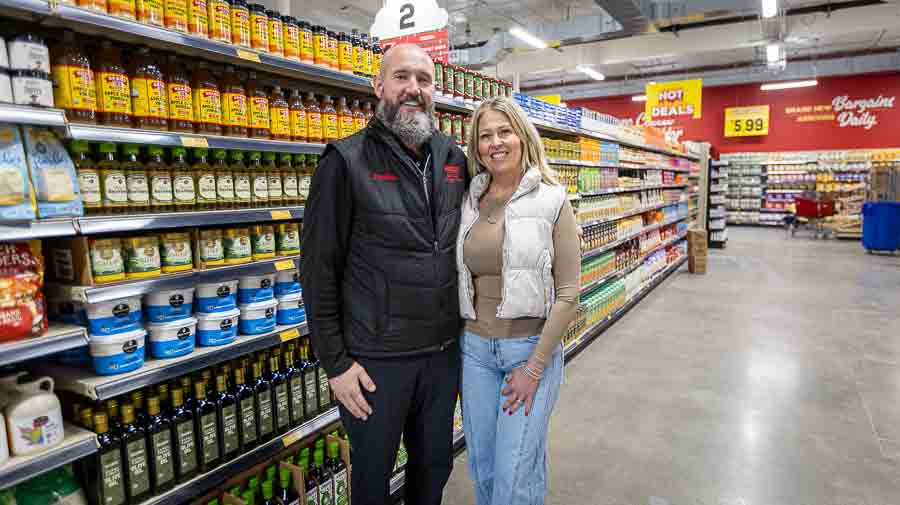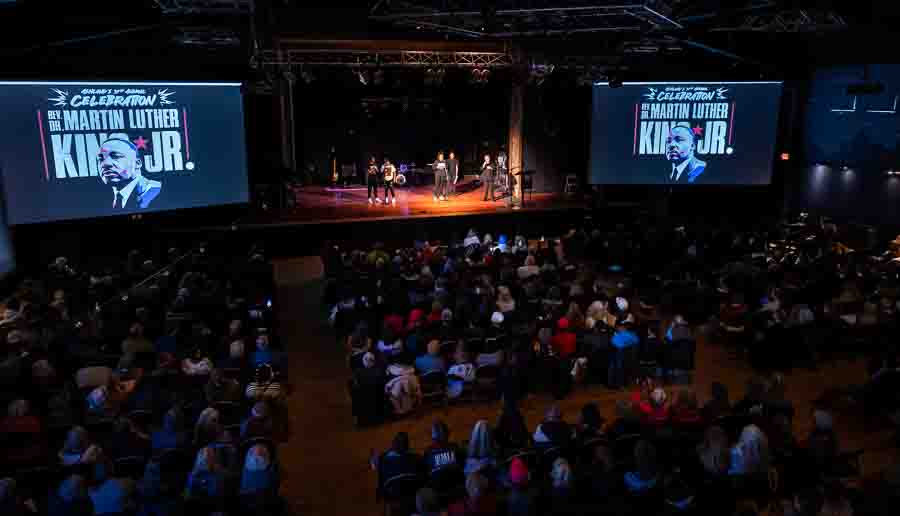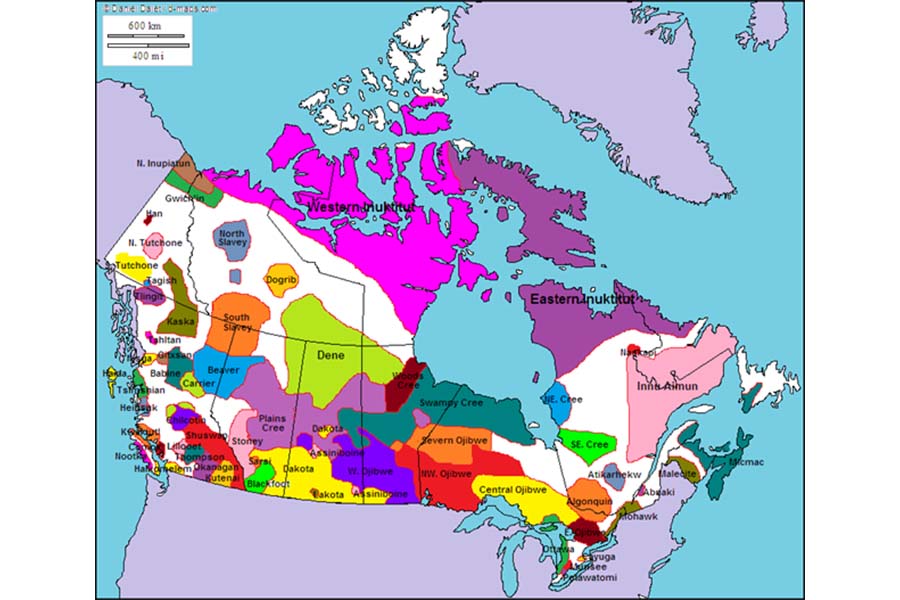New initiative aims to collaborate across differences to solve big problems
By Meg Wade for Ashland.news
An internationally recognized expert in the areas of civil rights and civil liberties spoke and anchored a panel discussion Monday that drew a packed house to Angus Bowmer Theatre in Ashland for the launch of “All.Together.Now,” envisioned as a “multi-year, multi-generational, multi-cultural collaboration to strengthen our community for the future,” according to meeting organizers representing a broad array of regional nonprofit organizations, educational institutions and a governmental agency.
A full house of some 600 people flocked to the Oregon Shakespeare Festival campus for a presentation by University of California, Berkeley Professor of Law and African American Studies and Ethnic Studies john a. powell, director of the Othering & Belonging Institute. He spells his name in lowercase in the belief that we should be “part of the universe, not over it, as capitals signify,” according to UC Berkeley News.
The launch of the All.Together.Now initiative is framed as “an invitation to other community leaders to join a two-year collaborative project starting in Ashland” to find new ways to approach “intractable problems” the region is facing. The project currently claims a dozen community partners: Ashland Together, the city of Ashland, Southern Oregon University, Ashland School District, Ashland.news, the Oregon Shakespeare Festival and Rogue Community Health.
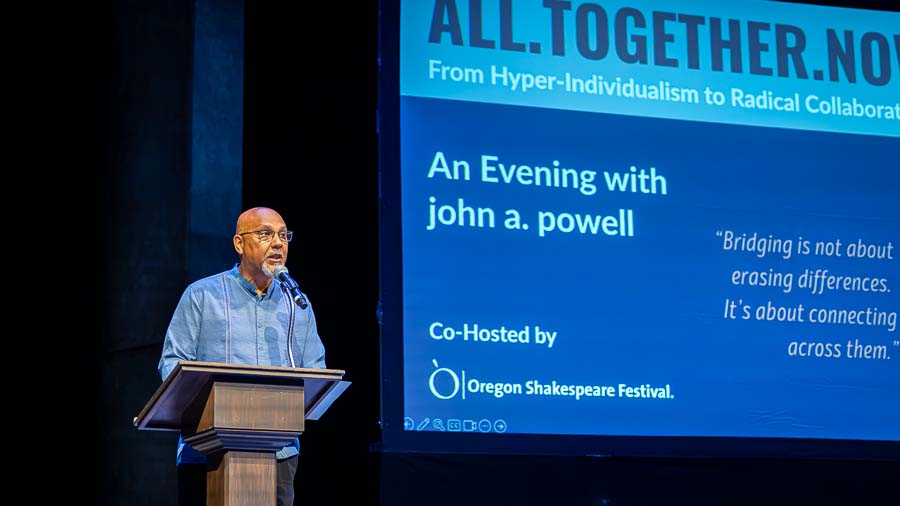
The evening began with a welcome and introduction by Oregon Shakespeare Festival Artistic Director Tim Bond, who spoke about theater as “an act of democracy” and “a sacred public space designed to bring people together across all backgrounds, to share stories that illuminate our collective humanity, promote possibilities of reconciliation, build compassion, amplify voices of our American mosaic and engender hope even in our darkest times.”
Othering, breaking, belonging, and present-day challenges to equality
Sub-titled “From Hyper-Individualism to Radical Collaboration,” powell’s talk focused on core concepts based in the research of the Othering & Belonging Institute (OBI), including sociological processes of “othering,” and the way in which notions of the “other” are generated through stories and collective-meaning making, and specifically what OBI labels “breaking stories,” in contrast to the other dominant story form, “a bridging story.”
“A ‘breaking story’ goes something like this,” said powell: “You know, things are really getting bad, it’s not like it used to be. If it wasn’t for them, we’d be in a good situation. They’re really threatening our very existence. They’re threatening our culture. They’re threatening our future. We gotta get rid of them. We gotta confine them.”
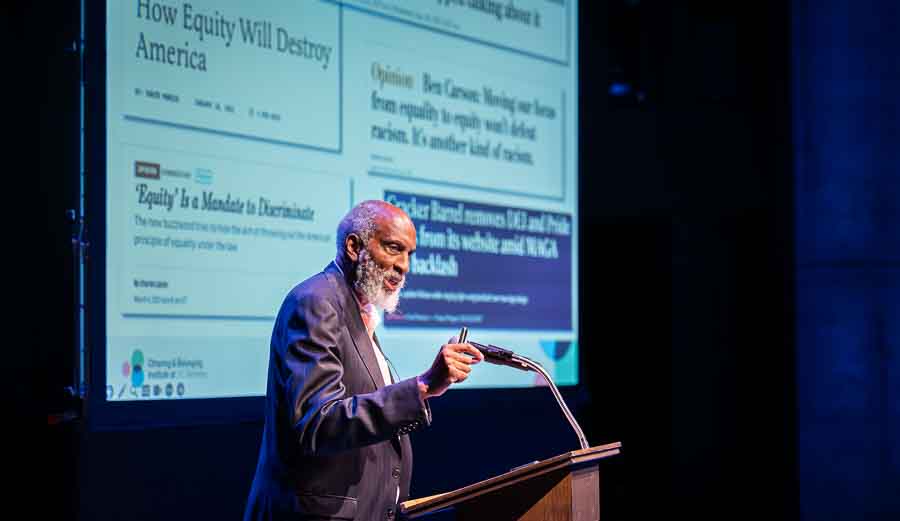
“They can be made up,” explained powell. “The story doesn’t even have any truth to it. It just has to have resonance. And then ‘the other’ becomes the cause of all of our problems.”
The motivation for such stories often comes from stress and difficulties with rapid change, powell noted. “Bridging stories” take a different approach to such change. “They say something like, ‘The world is changing. I don’t know what it means. I don’t know what’s coming. And I don’t know if it’s all good,'” without focusing on fear and blame.
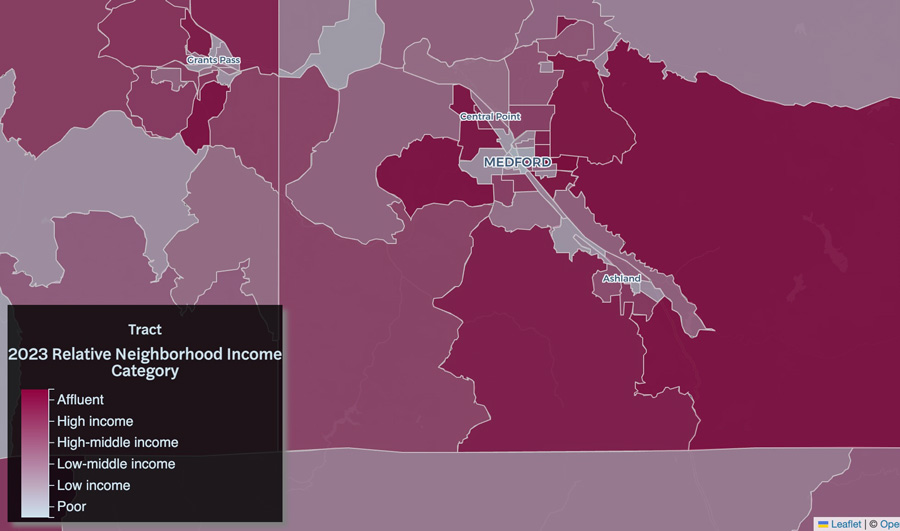
Powell focused in on influential figures he felt increased the prevalence of breaking stories, and who he thinks have helped shatter the shared containers that have in the past allowed those with opposing viewpoints to do such bridging work. He called these figures “conflict entrepreneurs,” naming PayPal founder Peter Thiel, writer Curtis Yarvin, and others associated with the “Dark Enlightenment” as examples, highlighting Thiel’s statement that he “no longer believes that freedom and democracy are compatible.”
“This is not a problem of Democrats and Republicans, or conservatives and liberals,” claimed powell, groups which he described as having traditionally argued over how to apply the tenets of equality and democracy. “Conflict entrepreneurs” and adherents of the Dark Enlightenment, in contrast, don’t believe in these values at all and encourage authoritarianism, he said.
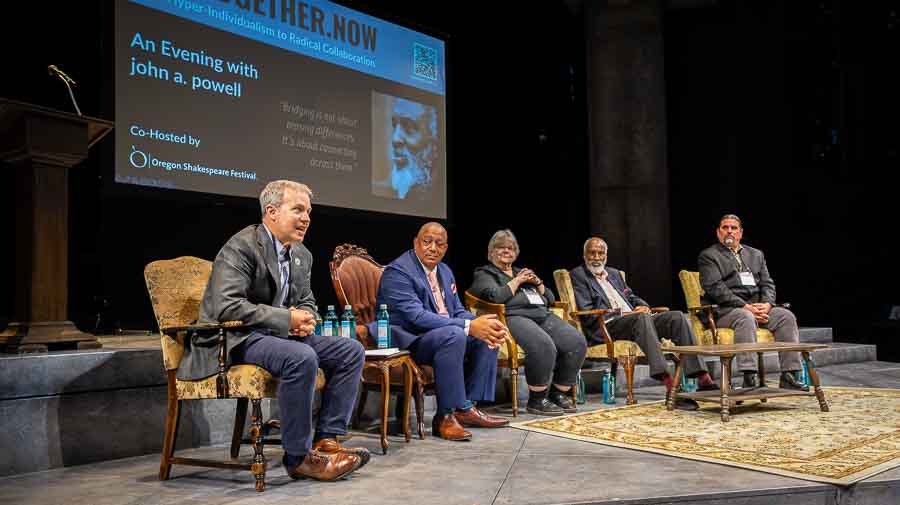
They are able to do so in part because of social fragmentation, argued powell, and hence developing bridging stories with the aim of increasing belonging are an important counterforce. Powell distinguished between “belonging” and “inclusion,” likening inclusion to the act of inviting someone to a party tailored to your own tastes, rather than co-hosting a party in which your tastes are both reflected, and thus you both feel as though you belong — “It’s not my thing, it’s not your thing, it’s our thing.”
After his remarks, powell took part in a panel discussion moderated by Dr. Rick Bailey, president of Southern Oregon University, along with D.L. Richardson of Black Southern Oregon Alliance and Dee Anne Everson of United Way of Jackson County, both members of the All.Together.Now initiative, as well as Marko Bey of Lomakatsi Restoration Project (“lomakatsi” is the Hopi term for “life in balance”).
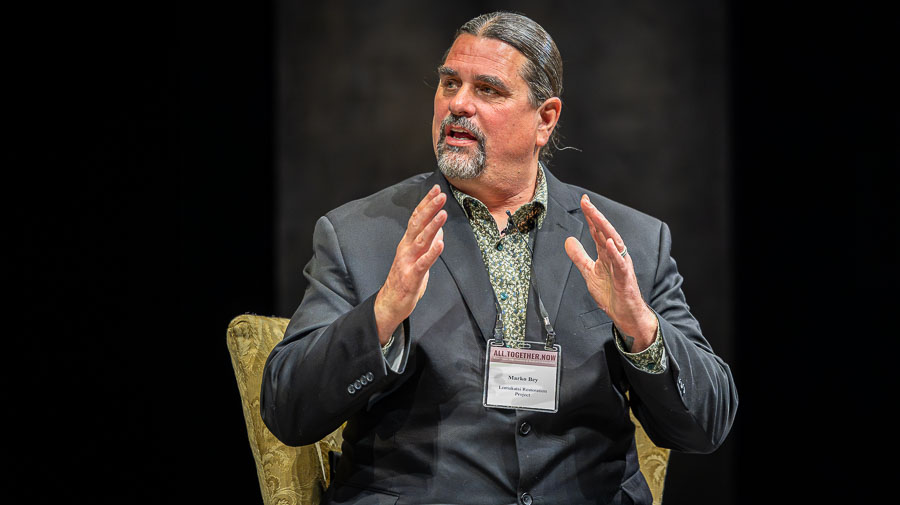
Panelists discussed some of the ways their work aims to bridge and also create a sense of belonging. Richardson talked about BSOA’s Black Youth Leadership Summit, in which “for one day, at least, Black students can be themselves and see themselves.”
Bey offered up the collaboration happening between tribal partners utilizing “Traditional Ecological Knowledge” (TEK), government partners, and those with a history in logging to find “zones of agreement” to allow for “removal of logs in an ecological way that restores the forest.”
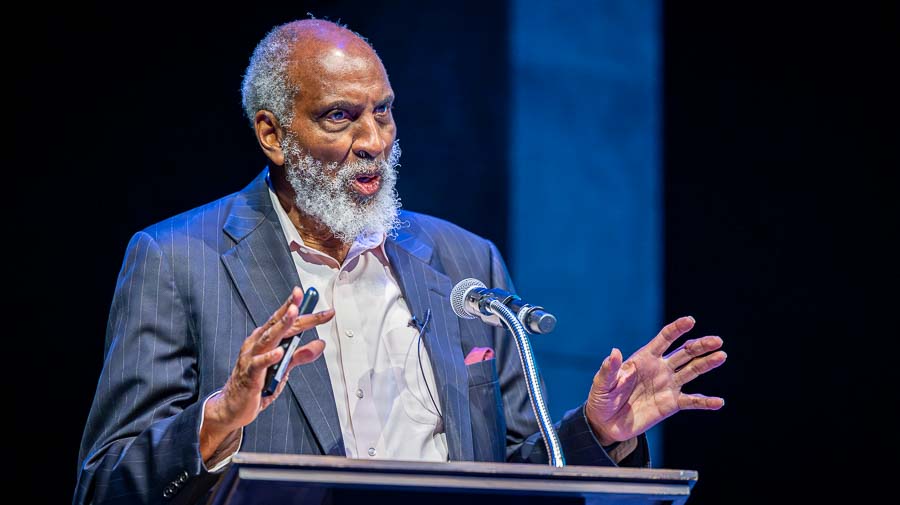
All.Together.Now to include Talent, Phoenix
The tone of the event was celebratory and upbeat, with emphasis on the broad array of community members who were already engaging with All.Together.Now. While expansion of the initiative outside of Ashland was described as a future goal, local leaders from Talent and Phoenix were already present Monday night. Nancy Castillo-McKinnis, board member for the Phoenix-Talent School District, was in attendance and shared about her reasons for participating.
“I’m an immigrant to the United States,” Castillo-McKinnis said, “so this idea of belonging — I live it, breathe it, experience it, when it works really well and when it doesn’t work really well. I want to utilize this noble idea, because I do believe in the inherent worth and value of people.
“I do this because I know I need it, and I see the needs of my community, and I think by using our influence and our gifts of connecting, we can empower and support people, especially the most marginalized of people that oftentimes don’t have a voice.”
Talent City Councilor Rosario Medina attended. The discussion had her wondering: “Talent likes to say it’s a ‘Maker City.’ But what if it was a ‘belonging city’?”
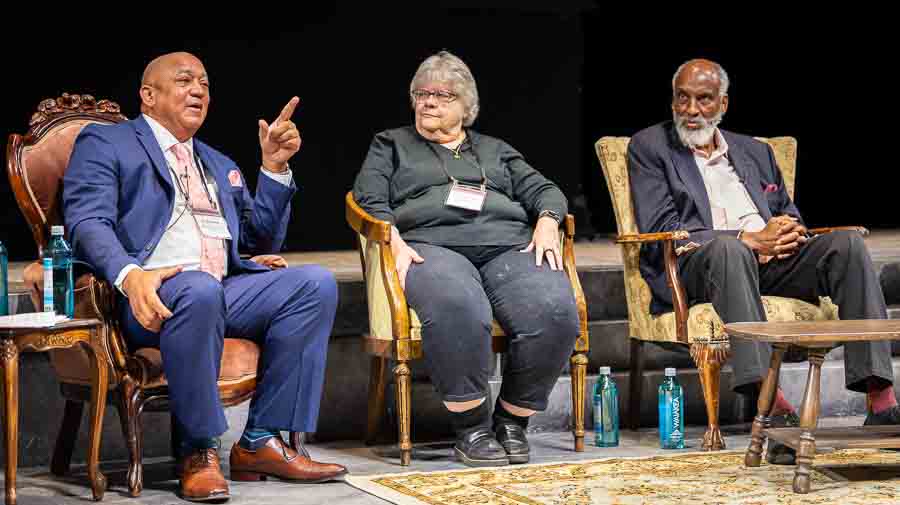
ELEA sparks discussion of belonging and exclusion
The challenge and difficulties the All.Together.Now initiative will face in applying powell’s work and in collaborating across different perspectives to build a “belonging city,” however, could be seen both at Monday’s event and again at the Ashland City Council meeting Tuesday evening.
Outside the theater Monday night, a small group handed out leaflets that read “Ashland says it wants to create a culture of belonging. So why are we setting up ‘Exclusion Zones’ that literally push people out of public spaces?” The handout suggested attending the City Council meeting the next night to speak against ordinance amendments to the Enhanced Law Enforcement Area (ELEA) to ease the expulsion process.
Their concerns were vocalized on stage during the panel by Everson. In response to a question by Dr. Bailey on Ashland’s biggest challenges, Everson said, “I live in a town that I care deeply about that has (two exclusion zones). That is not belonging. I’ve made my point clear about that. But I care a lot about that. I feel like we’re losing quite a bit of our humanity.”
At Tuesday’s council meeting, powell’s work was quoted both by councilors who voted in favor of the ordinance and those who voted against it, as well as residents who testified on the issue (all six who gave public testimony spoke against the ordinance amendment).
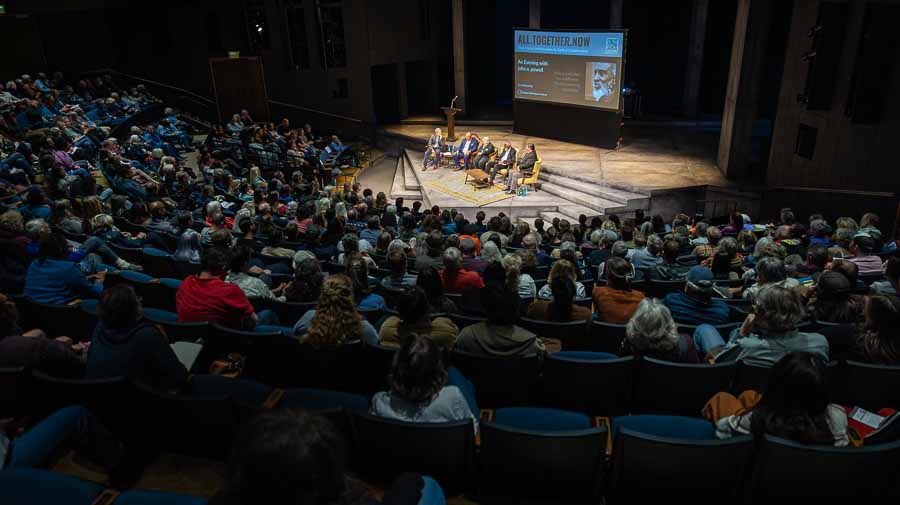
Councilor Jeff Dahle, who voted in favor, cited powell’s concept of “targeted universalism” in his reason for voting for the ordinance: “As noted by others previously, those that were able to attend the john a. powell event last night will recall that we learned that dr. powell teaches and promotes a concept called ‘targeted universalism,’ which is a mechanism by which we can promote universal goals like safety, dignity, inclusivity and fairness for everyone, while simultaneously recognizing that every individual faces different barriers and therefore require targeted approaches to ensure everyone can reach the same result. This means helping those who face extraordinarily difficult challenges while firmly and gracefully confronting those actions which erode public trust and safety.”
Targeted universalism is the use of specialized strategies to aid different groups in achieving universal goals that are collectively set, rather than using the same strategy for all groups, or focusing only on one pre-determined group. It is usually applied to conversations about benefits and additional services, not to additional penalties, such as the penalty of expulsion in the ELEA. However, the OBI does conduct research on policing and its intersections with homelessness.
Councilor Eric Hansen, who voted against the ordinance amendment, said that the present ELEA expulsion process was enough, and that the amendment did not help the community and could face constitutional challenges. “We need to start building bridges,” said Hansen.
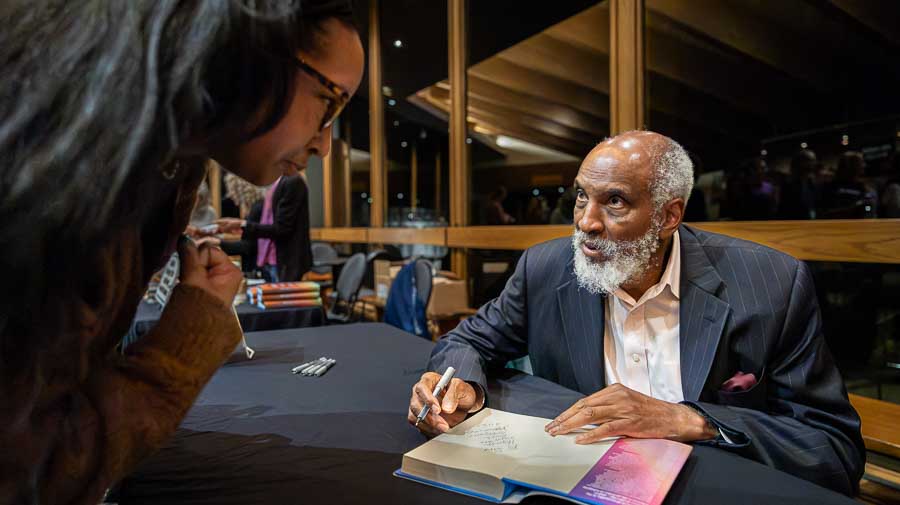
In the end, the council voted to approve the ordinance amendment on a 4-2 vote. Councilor Bob Kaplan joined Hansen in dissenting.
Email Ashland resident and freelance journalist Meg Wade at news@megwade.net.
Ashland.news board member Hillary Larson is also a board member of Ashland Together and has played a founding role in All.Together.Now. Ashland.news editorial content is under the independent direction of the Ashland.news newsroom.
